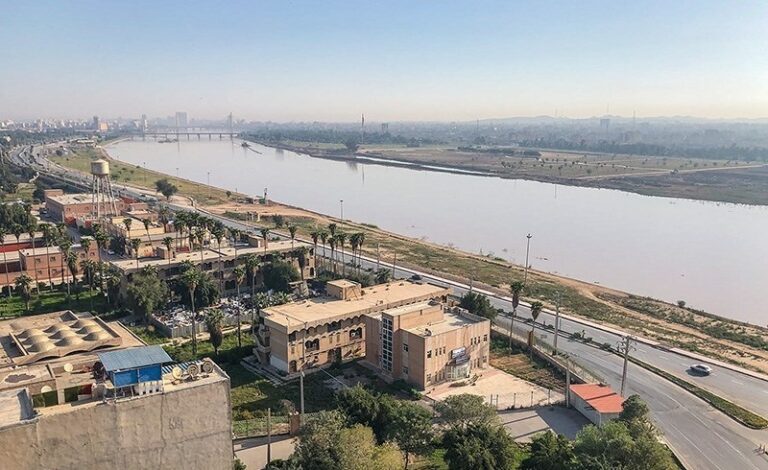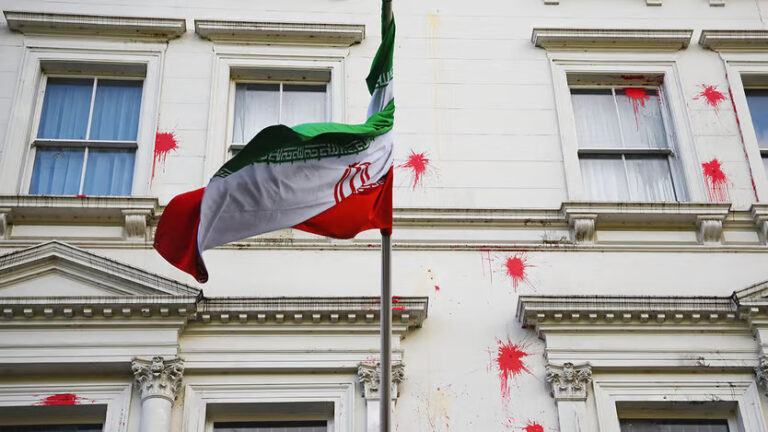AL ARABIYA WITH AGENCIES
Iran has activated a new generation of centrifuges at its Natanz nuclear site that will greatly speed up its uranium 
enrichment activities, President Mahmoud Ahmadinejad said on Wednesday. “Approximately 6,000 centrifuges were working, 3,000 have been added to that amount. (Now) there are 9,000,” he said in a speech broadcast on state television. The President had verified comments made by a nuclear official earlier. “Today we witnessed the activation of the first cascade of these centrifuges,” the head of the Atomic Energy Organization, Fereydoon Abbasi Davani, said in a speech also broadcast on state television. “They increase Iran’s capacity to enrich uranium by three times,” he said.
The announcement follows comments from Russia on Wednesday over progress in Iran’s nuclear program, as tensions between the Islamic Republic and Western powers increase dramatically.
But the Russian deputy foreign minister, Sergei Ryabkov, had said that despite fears over Iranian nuclear plans, it saw no hard evidence of military aims, the Interfax news agency quoted him as saying.
Russian Foreign Minister Sergei Lavrov urged Tehran to co-operate with the world’s nuclear energy watchdog to resume stalled talks over Iran’s suspect nuclear program.
“We would like to encourage the Iranians work with the agency, we encourage strongly for them to continue dialogue on specific suspicions,” Lavrov said at a press conference in The Hague on a two-day visit to the Netherlands.
Lavrov’s visit to the Netherlands comes as tensions rose between the West and Iran over Tehran’s nuclear activities, which the United States and its allies fear masks a drive for atomic weapons.
The Russian minister however warned against outside interference to pressure Tehran, saying “we believe it necessary to avoid anything that might undermine cooperation between the IAEA and Iran,” including sanctions.
“The important thing is that whatever is being announced and done in the nuclear area must have the full control of the IEIA,” Lavrov added.
Meanwhile on Wednesday, Iran said it had replied to a letter sent nearly four months ago by EU foreign policy chief Catherine Ashton proposing a resumption of stalled talks with world powers on its nuclear program, the official IRNA news agency reported.
The letter, written by chief nuclear negotiator Saeed Jalili and handed to Ashton’s office, reads: “Iran welcomes the readiness of the P5+1 group to return to negotiations in order to take fundamental steps toward further cooperation.”
The P5+1 consists of the five permanent U.N. Security Council members — Britain, China, France, Russia and the United States — plus non-permanent member Germany.
“Iran is ready for the continuation of talks,” Jalili’s letter said, adding that Iran “welcomed a recent remark by Ms. Ashton that the European Union respects Iran’s right to peaceful nuclear energy.”
In response, the European Union said it received the letter from Iran and was “carefully studying” its content.
The last talks between Iran and the P5+1 took place in Istanbul a year ago and produced no results.
Since then, tensions over Iran’s nuclear program, particularly between Washington, the European Union and Tehran, have escalated dramatically.
Western nations, who accuse Tehran of seeking a covert nuclear weapons capability, have ramped up economic sanctions against Iran over the past three months after the U.N.’s International Atomic Energy Agency issued a report saying it had evidence the Islamic republic appeared to be conducting research on atomic warheads.
Tehran insists its nuclear program is solely for peaceful purposes.











+ There are no comments
Add yours